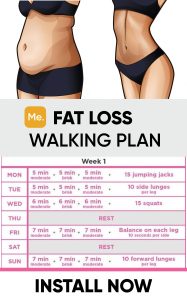The rate at which you can lose weight varies depending on many factors, including your starting weight, age, gender, and activity level. In general, a safe and sustainable rate of weight loss is around 1-2 pounds per week, or 4-8 pounds per month. This rate of weight loss can be achieved through a combination of dietary changes and increased physical activity.
It’s important to note that while rapid weight loss may be tempting, it can also be unsafe and unsustainable. Losing weight too quickly can lead to nutrient deficiencies, dehydration, and muscle loss, among other potential negative side effects.
To ensure that you’re losing weight in a healthy and sustainable way, it’s important to focus on making gradual changes to your diet and lifestyle. This can include increasing your intake of fruits, vegetables, lean protein, and whole grains, while reducing your intake of processed and high-calorie foods.
In addition to dietary changes, increasing your physical activity can also help you achieve your weight loss goals. This can include a combination of cardio and strength training exercises, such as walking, jogging, weight lifting, or yoga.
It’s important to remember that weight loss is a journey and it may take time to reach your goals. Patience and consistency are key, and it’s important to celebrate small successes along the way to stay motivated and on track. Additionally, consulting with a healthcare professional or registered dietitian can provide personalized guidance and support for achieving your weight loss goals safely and effectively.







Melissa Wilson
The rate at which you can lose weight depends on various factors, including your starting weight, metabolism, genetics, age, gender, overall health, and lifestyle choices. While it's tempting to desire rapid weight loss, it's important to approach weight loss in a safe and sustainable manner. Generally, a safe rate of weight loss is considered to be 1-2 pounds per week. Here's why:
Healthy and sustainable weight loss: Losing weight gradually allows your body to adjust and adapt to the changes. It promotes the preservation of lean muscle mass and helps prevent nutrient deficiencies that can occur with extreme calorie restriction.
Long-term success: Rapid weight loss often leads to weight regain once normal eating habits are resumed. Gradual weight loss, on the other hand, promotes sustainable habits that can be maintained for the long term, leading to more successful weight management in the future.
Health benefits: Slow and steady weight loss is associated with a higher likelihood of maintaining improvements in blood pressure, blood sugar levels, cholesterol levels, and overall health markers. It also reduces the risk of gallstones and other complications associated with rapid weight loss.
Behavior change: Gradual weight loss allows you to develop healthier eating and exercise habits, which are essential for long-term success. It gives you time to learn about nutrition, portion control, and sustainable exercise routines.
Remember, the journey to weight loss is unique to each individual, and it's important to focus on overall health and well-being rather than solely the number on the scale. It's recommended to consult with a healthcare professional or registered dietitian who can assess your specific needs and develop a personalized weight loss plan that aligns with your goals, lifestyle, and health conditions. They can provide guidance, support, and monitor your progress to ensure safe and effective weight loss.